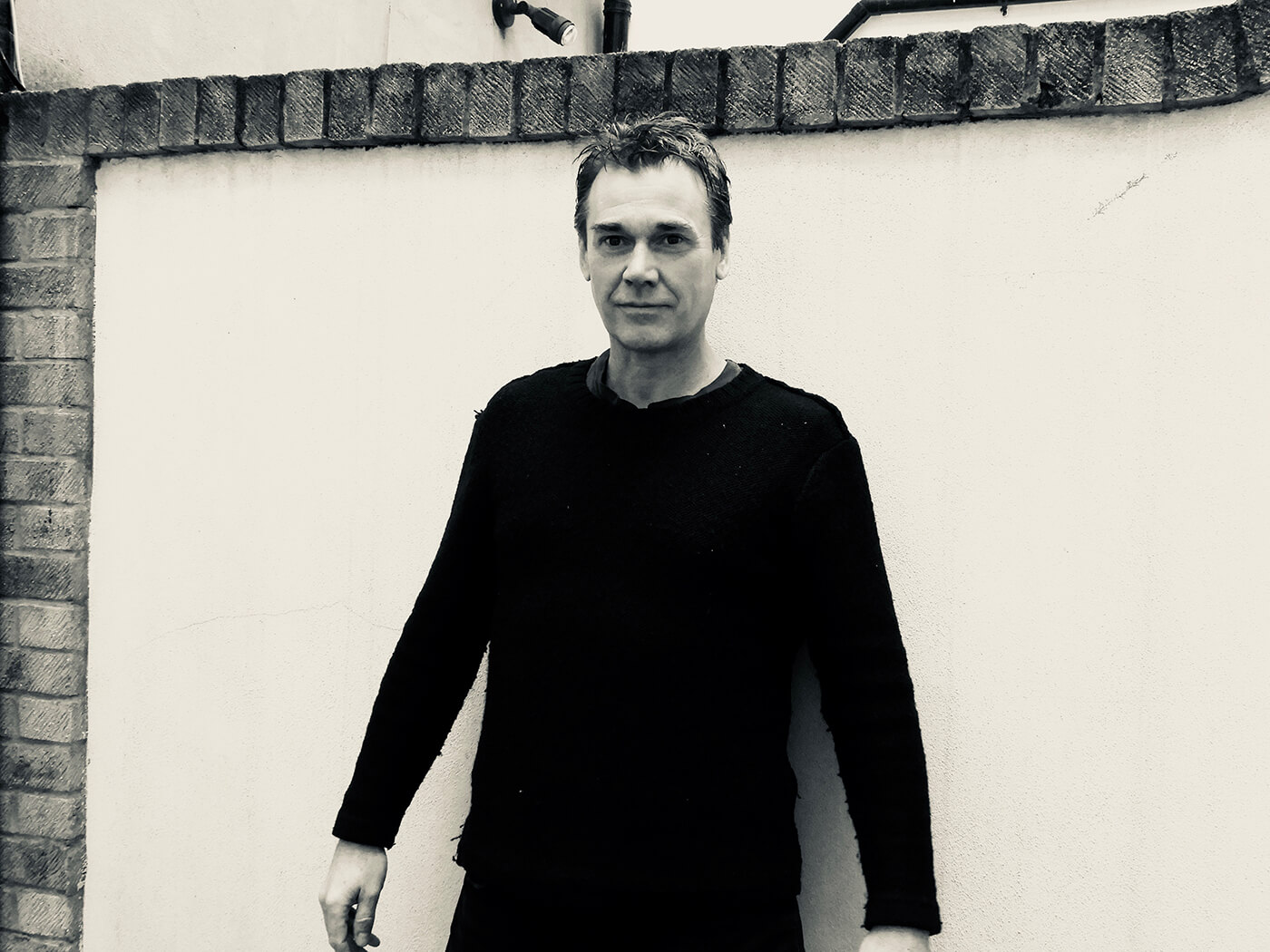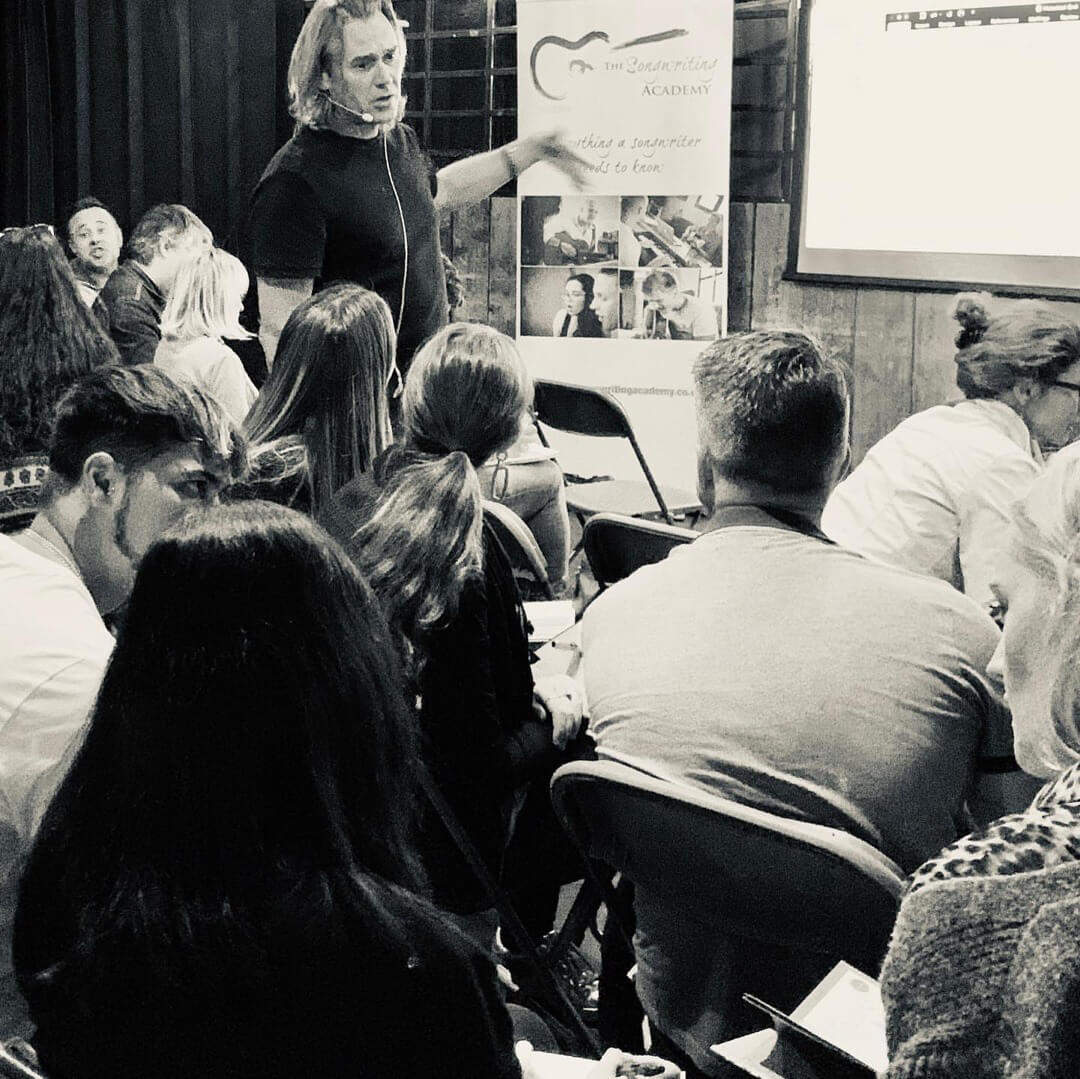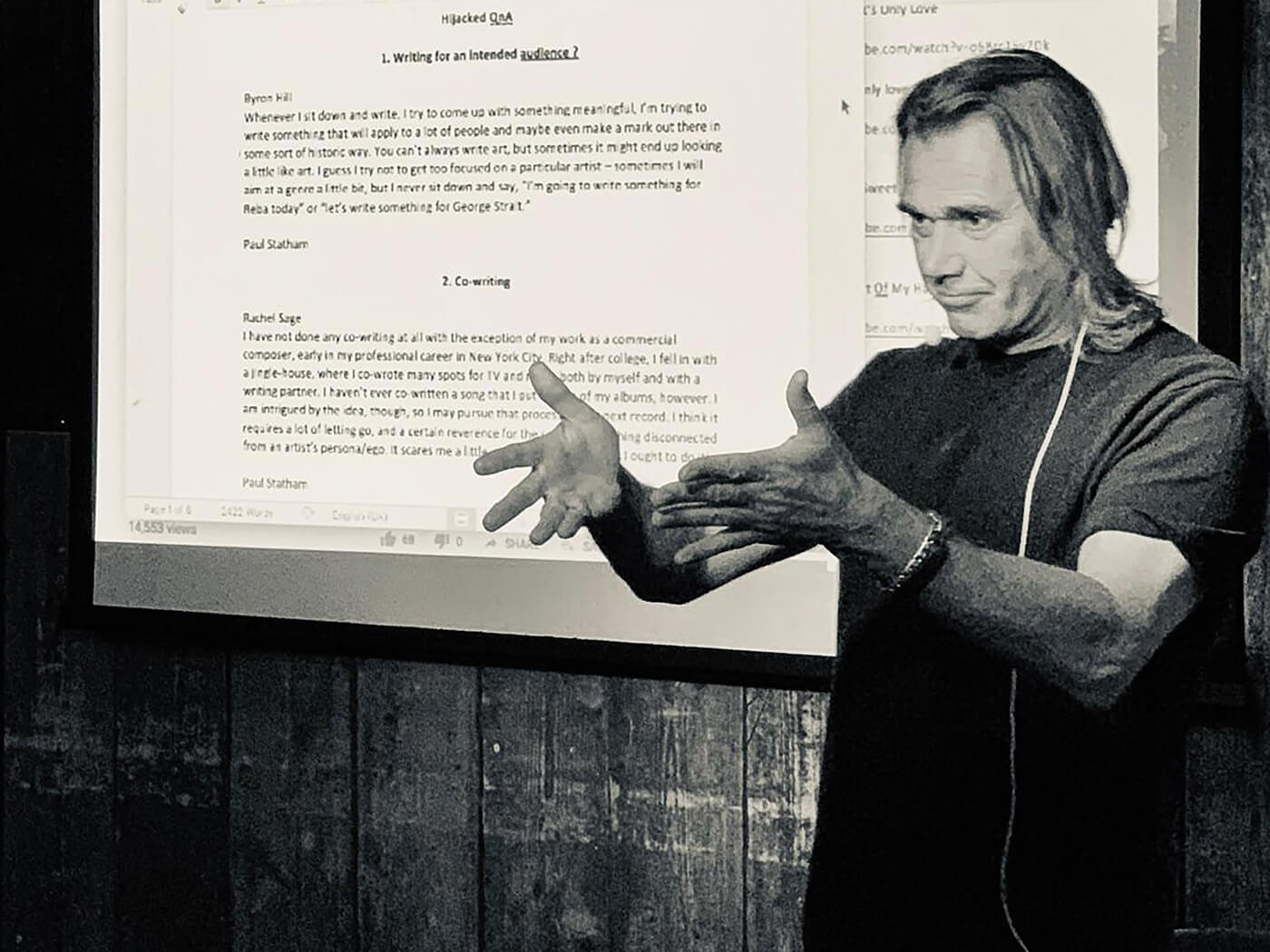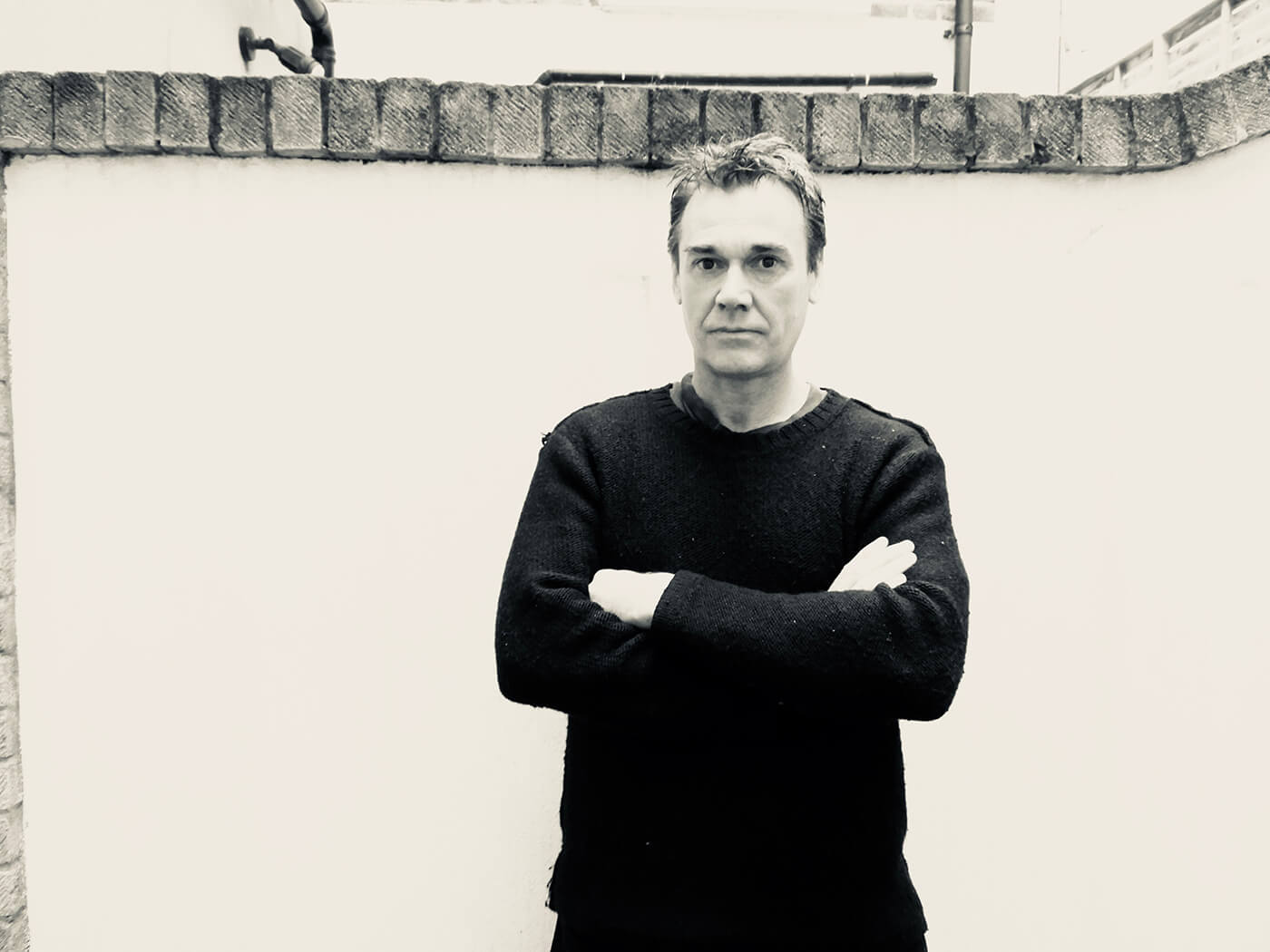Paul Statham, multi-Platinum songsmith for Warner Chappell Music, on how to write hits
One of Warner Chappell’s longest-serving songwriters, Paul Statham has penned global smash hits – including Dido’s massive Here With Me – while also building a tangential career crafting darker, gothic fare with Bauhaus singer Peter Murphy and his supergroup project The Dark Flowers. Now developing new artists for Warner Chappell and educating students around the UK, Paul shares his well-honed wisdom with us…

In the last decade, songwriting courses have flourished around the world, with droves of passionate students keen to cultivate the skills that will enable them to join the sizeable writing teams behind the charts. Music-industry stalwart Paul Statham is one of the architects behind the Writing For Commission module at BIMM London, a visiting professor of music at Leeds College of Music and runs the weekly BA songwriting workshops at Solent University.
He transitioned into the academic world after an illustrious career co-writing with a range of artists, most notably of course, Dido on the ubiquitous Here With Me and the title track of her 2001 debut album No Angel, as well as tracks on Kylie Minogue’s 2001 No.1 hit album Fever. He’d previously had a US Top 20 hit with his electro-pop group Peach and the song On My Own (which was featured in the film Sliding Doors).
Here, we speak to Paul about his experiences and glean some insight into the practical realities of surviving as a professional songwriter.
How did your interest in songwriting begin and how did your own career then develop?
When I was younger I was more fascinated by sound, I loved drawing, too. I’d make these charts of popular songs of the time, deconstructing them. I’d put different instruments in different colours. It was kind of a weird hobby, but I loved trying to work out who did what in certain bands. When I discovered Brian Eno, I got more into textures and sonic landscapes. I became pretty obsessed by that.
It was only when I put my first band, B-Movie, together, that I really started songwriting. I found out that Steve the singer who was writing all our stuff was getting paid four times a year by the PRS, I realised then that there was more money in songwriting.
Songwriting kind of became a necessity – we had a punk ethos and so writing our own stuff was fundamental to what we did. As we progressed into the early 80s, we noticed that huge wave of bands that took America by storm: bands like Soft Cell, Duran Duran, Spandau Ballet… and we kind of got lumped into the lesser end of that sound. But there was a lot of encouragement in the industry for bands to write new songs. It was quite unlike now, where there’s an industry of songwriters writing for artists behind the scenes. There were no songwriting courses then, it was just part of being in a band.
There is a clichéd idea that you can’t teach songwriting. But of course you can
Did you try and write commercially successful songs at this point?
Not when we first started. We mainly cared about writing interesting chord changes, lyrics about dystopian futures, reading books and being intellectual. We tried to find angular guitar riffs, too. So it was more for our own creative satisfaction and what we perceived our audience as wanting.
It was only when major labels became involved that the pressure to write to a format reared its head. They said: “If you don’t get a song on Radio 1, you won’t stay signed to us.” We were told to look at these other bands and try to write more formulaic pop. But we didn’t really succeed.
Under the godfather’s wing
Were those pressures to be successful useful when you were writing?
Not at that particular time. I was personally more interested in touring and performing live on stage, really. It’s only as I’ve got older that I’ve been able to look under the hood of songwriting and the mechanics of it. Songwriting is such a fantastic thing to learn. It suddenly became really interesting. In 1986, I joined the ‘Godfather of Goth’ Peter Murphy (former lead vocalist with Bauhaus) and I left B-Movie. Peter had a sizeable audience, in America as well as the UK, and he asked me to become his co-writer. So that’s when I started taking the role of ‘songwriter’ seriously.
Even though his audience was goth and very dark, there was a definite structure to the songs that I could understand. I was suddenly there with a fixed role. I really broadened my instrumental skills – I learned keyboard, developed my guitar-playing ability and got into recording. So I could deliver great-sounding demos to him. It was a successful time and the song Cuts You Up topped Billboard’s Modern Rock chart in 1990. That’s when I started earning a significant income from songwriting. I stayed with Peter for 10 years in his live setup and still continue to write with him now.
How was the process of writing with Dido and did you have any inkling of how big the record would be?
It was during my time in the 90s with Peach. Dido was the sister of Faithless’s Rollo Armstrong and she wasn’t signed or anything. But my publisher said there was this great girl and that I should do some writing with her, so I just started writing. We wrote some songs and then Clive Davis heard them and signed her to Arista. Luck would have it that a song we wrote called Here With Me became an early single and a massive Top Five single; her profile was raised of course by the collaboration with Eminem, Stan.
It was then that I realised that I could call myself a professional songwriter, so I signed to Warner Chappell (who I’m still with 20 years later). Following that, I got to work with Kylie Minogue on her Fever album which did seven million sales. That was the album that had Can’t Get You Out Of My Head on it. It was her only big US album.
So following your career writing with a range of artists, how did you get into academia?
Well, I’ll be completely honest, I don’t enjoy writing for the current state of out-and-out pop music. I really love working with and developing artists for long periods of time, but I realised that getting a job was really important financially as well as keeping my love of songwriting going. I’m currently running the songwriting units at Solent University. I used to run a course at BIMM and still do one-to-ones with students. I’m a member of the Songwriting Academy as well as being a visiting professor at Leeds College of Music. So between all of that, I have a really solid income, coupled with royalties and income from Warner Chappell, those things make life good. This allows me to choose the creative projects I want to be involved with as an artist myself.

Changing landscape
What are some of the typical conversations you have with young songwriters?
I feel really sorry for a lot of young songwriters, because the landscape is so different. I do think there’s more instantaneous pressure on them to succeed. With the people I work with at Warner Chappell, I’ve noticed that there’s a pattern of young artists who want to achieve so much in one day. They want to make their hit to play to their manager. They aren’t giving themselves enough time to find their voice or do something interesting. There’s a lot of these disseminated structural things that they’ve been told such as, “I need to get to the chorus within 15 seconds so the song sticks in people’s minds.” I just wonder if that’s really what they want to get out of being an artist in music.
People getting into this world [should] try and develop something unique, distort genres and try and be interesting
What are the biggest challenges with actually teaching the topic of songwriting in academic institutions. Is it a route you’d recommend?
If a student asked me, “Should I be here?” my response would be, “If you’re curious and you want to learn how to be better, then you should be.” If you’re very good at what you do and you believe in it – then get doing it! If you’re doing a degree, three years is a long time. Having said that, I do see amazing progressions take place working with young songwriters. There is a clichéd idea that you can’t teach songwriting. But of course you can.
There’s ways of approaching genres and song types structurally. It’s usually a three-and-a-half-minute construct that follows such a rigid order. Of course, there have to be rules. If someone asks me to help them write a pop song, or a song for Nashville or a song in the style of Ride or dream pop or something like that, or even a metal song, I think it’s relatively straightforward. There’s techniques that are applicable to every genre.
BIMM runs a three-year songwriting degree which gives students time to explore different genres etc, in depth… but while Solent Songwriting is an option on performance/production, the facilities are brilliant and we have four-hour workshops which really focus the student. I have learned so much more myself by researching these workshops over 24 weeks. My own songwriting has improved a great deal as a result.

Do you think absorbing too much rule-based strategy can be detrimental to a songwriter, though?
I think you only have to look at the current state of the Top 20 to see that. I do this with my students quite a lot. We looked at Justin Bieber, Ariana Grande and a couple of bands. I brought up eight or nine lyrics from that week’s Top 20. They were so appalling, they were like sexualised nursery rhymes, or boastful ‘I’m better than you’-type sentiments. The whole class of contemporary songwriters said they didn’t want to go there.
That was shocking – they want to learn how to be better songwriters, but don’t want to touch what’s actually selling and being streamed in the millions at the moment. Everyone agreed that there was so much formula to the way those songs were written and that they didn’t want to do that.
I personally like artists who mix it up. There’s always room for a fantastic new band or artist who’s going to come along and mess it all up and change how things sound. I think Grimes is a good example of that kind of person, she’s both very commercial and also very sonically interesting and in control of her own direction. A lot of the more leftfield R&B is actually where the interesting sonic things are happening at the moment. I’d recommend that people getting into this world try and develop something unique, distort genres and try and be interesting.
You’ve worked with lots of different artists, how does that differ from writing alone?
I really enjoy being in the room writing with someone else. I think seeing someone else’s enthusiasm for someone immediately comes back to you and validates ideas. When writing alone, the road is pretty open, but you’re kind of in thrall to that critical voice that says, ‘It’s not going to happen.’ I think I’m a collaborative songwriter by nature. I actually very rarely write any song of my own single-handedly from start to finish. I normally always write with somebody else.
The end of the story
Thinking about songwriting as a technical process, do you think it’s wise to start a song in front of a computer screen, using a DAW? Or should you generate ideas somewhere different from the place you’ll ultimately produce it?
I think that depends on genre. I’m working with a girl who’s very beat-driven, so having a rhythm track to work with early is important. I’ve noticed there’s a lot more emphasis on vocals at the moment, as well. Loads of people who are developing as songwriters have spent years honing their vocals (thanks to TV talent shows such as The X Factor). They can sing great, but they want to learn how to sing about something that’s interesting!
There’s a guy I write with called Nick Wilson, who’s got around 10 million streams a song on Spotify. He has an amazing, ethereal voice, with reverb-laden acoustic guitars and quite a nice lush production. Even though the production sounds as grand as it does, everything just starts with the computer turned off and two guys and some acoustic guitars, facing each other, saying: “So what are we going to write about?” So that approach works with someone like him, but wouldn’t work with the beat-oriented girl.
I worked with a great guy called Flynn last week who has a big Spotify hit at the moment. Based on the sound of his records, I thought he’d be more of a computer-based producer, but he actually wrote everything just at the piano. Once we’d written it on the piano, we had a real structure and a really strong melody, so we were then able to go to a DAW and put beats behind that structure.
I think it’s so easy to kind of let Logic and Ableton Live push you to make very mediocre songs, if you rely on a lot of presets that guide you, but it’s not necessarily going to be a memorable piece of music.

How important is the lyrical component for songwriters in the modern world?
There’s a trend in songwriting right now where narrative is being shortened. Any kind of story component is secondary to the desire to make the lyrical content hooky. There’s a study that points out that a lot of sales of physical CDs takes place in Asia, where the language barrier is a problem. The more direct, to-the-point and hooky the song is, then the sooner they’ll get a grasp of it.
There’s a danger that lyricists of the Tom Waits, Laura Marling, Bob Dylan and Nick Cave school are being lost. Interestingly, people who aren’t great singers tend to be better narrative songwriters. Even bands like Arctic Monkeys, whose lyrical content is central to what they do, aren’t really making a massive mark on the singles charts anymore, they’re more of an albums band now.
But there is a great wave of female singer-songwriters at the moment, like Marika Hackman, where narrative emotional honesty and storylines are coming back to the forefront. You might not necessarily hear it on mainstream radio. Radio tends to like things that are short, sharp and instantly memorable.
The song remains the same
Turning back to the academic world, how are courses typically structured?
So at Solent, it wasn’t a degree course as such, it was a unit option of the performance and production courses they do there. At BIMM it’s a fully fledged degree in songwriting. At Solent, I structure it well, I think – I do workshops and do six hours with the students. I will have sessions where we look at genres and approaches such as Nashville songwriting. We’ll break down a song and get reference videos of artists in that genre. Then I’ll stick them in a room for three hours and say: ‘Now write.’ They really take to it. We’ll also look at the context in which songs were written; we’ll look at the history of Motown and how song styles differentiate and evolve over time. We’ll analyse chord structures and arrangements, too. Then we look at how to write in those styles. The support from the course leaders is invaluable, as they all realise the importance of songwriting to both production and performance and at Solent we are aiming to make it core to the degree syllabus.
The true test is how much the students take from it and apply these techniques to their own writing. It shouldn’t be something that you stop, like a maths thing, the minute you leave the class. You need to take it with you and absorb it. It becomes part of your armoury of writing future songs.
I think it helps, if you want to be a songwriting academic, to actually be working in the industry itself in some capacity. I can share stories and play them tracks I’m working on at Warner Chappell. The numbers are going up and up for the songwriting courses, so there’s definitely a hunger to learn.

Do you think there are common threads and approaches that just work, in any genre?
Yeah, there’s a great book called Isle Of Noises, which features several fascinating conversations with songwriters. It just simply asks the question: ‘How do you write songs?’ And basically, the fundamental thing is that everyone builds the harmonic bed of a chord progression, with a great top-line melody. Words tend to be added later. Most people approach songwriting the same way; however, classical lyricists in the mould of say a Leonard Cohen, will often write lyrics first, but there will be a sense of metering in these written words that allow a melody to fit like a hand in glove.
Even if you’re starting with a beat, you’re establishing a shape, then dropping ghost melody over it. It’s like architecture – regardless of whether you’re building a cottage, a house, a skyscraper or a cathedral, you need to start with foundations. You still need the bricks and you still need the cement to hold it all together. It’s the same with songs. They’re not that different from each other, regardless of genre. Provided the chord changes work and there’s an effective melody. The song remains the same. The main differences can be how intense melody, chords or lyrics are.
Don’t spend too much time complaining about social media and streaming, try to understand how it can help you
Who are the great songwriters, in your opinion?
I like narrative songwriters like Tom Waits, Scott Walker and Leonard Cohen. David Bowie obviously is pretty massive. New music-wise, I think Marika Hackman is a sharp lyricist, exploring sexuality but in an indie-rock style. The experimental nature of R&B artist Grimes is also great, like I said. I really like Foals, who are almost going more proggy recently.
I’m constantly Shazamming new stuff that I hear around me. I’m of a certain age and there’s so much music from my past that I want to get into and read more about the historical context of. I’m a big reader of music books. I was reading about the Mamas And The Papas recently and that affects how I hear their music. It’s the same with great soul music. I think being passionate about the history and context of great songwriting makes you a better songwriter.
Would you agree that the modern industry kind of expects you to have a sizeable social-media audience? And that’s a new, important part of being an artist?
Yeah, there’s not as much money in just songwriting either, these days. So it’s tricky how people are expected to do more with less income. I know that there are quite a few successful songwriters who have to supplement their income with other work. People in fairly big bands often ask if I can get them some work at BIMM. People aren’t getting the same level of royalties in the streaming age. So you have to be open to doing other things, too.
Are there any go-to resources or tools that you use to help you write?
I’m a big advocate of the cut-up technique where you take lyrical ideas and shuffle them to make new ideas or trigger moods. There’s lots of websites now (example: languageisavirus.com) that allow you to quickly and easily do this with your lyrics, or things like passages from books. You can get different meanings and flows that can stimulate.
Aside from that, what I tell everyone is to just learn how to analyse a song that you like. If you can listen to a song that you like and think, ‘Actually, he’s using anaphora there,’ or ‘There’s two counter-melodies running under the main hook.’ Once they learn these things, they incorporate these deliberate songwriting methods into their own creativity. It makes it an interesting exercise.
The best resource is your ears – just listen to songs and try and work out what is affecting you. What is it about a song that makes you feel the way you do? Is it the dynamics, is it the lyric, is a weird chord inversion? Try and deconstruct the things you like, even when you’re sat on a bus or something. Not all the time, but at least spend an hour trying to understand what your favourite songs are doing. Once you’ve figured that out, you can apply a similar principle to your own writing, to try and make others feel the same thing.
If you can boil down one key piece of advice for aspiring songwriters, what would that be?
When it’s finished, put it out. So many people have hard drives full of half-finished songs. The good thing about the streaming age is that you can self-publish to Spotify and other platforms. Get your stuff out there. The idea now in songwriting isn’t to just hoard your song ideas for two years and slowly build an album. It’s immediate, continual publishing. You can keep releasing stuff. Don’t just leave it on your hard drive. Put it out now!
Also, don’t spend too much time complaining about social media and streaming, try to understand how it can help you. Learn how those Spotify algorithms work and embrace the modern world.
For more interviews, check here.